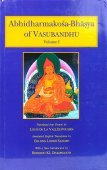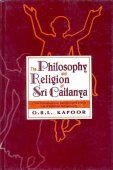Doctrine: 3 definitions
Introduction:
Doctrine means something in Buddhism, Pali, Hinduism, Sanskrit, Jainism, Prakrit. If you want to know the exact meaning, history, etymology or English translation of this term then check out the descriptions on this page. Add your comment or reference to a book if you want to contribute to this summary article.
Images (photo gallery)
(+7 more images available)
In Hinduism
Yoga (school of philosophy)
Source: ORA: Amanaska (king of all yogas): A Critical Edition and Annotated Translation by Jason BirchDoctrines (of any topic) are denoted by the Sanskrit term Siddhānta, according to the Amanaska Yoga treatise dealing with meditation, absorption, yogic powers and liberation.—Accordingly, as Īśvara says to Vāmadeva: “[...] Not by studying the doctrines (siddhānta-paṭhana) of scriptural exegesis, logic, planets and mathematics, nor by the Vedas, Upaniṣads, Dharmaśāstras [and the like]; not even by lexicons nor metre, grammar, poetry nor rhetoric; the sage's attainment of the highest reality is gained only from the oral teachings of his own Guru. [...]”.

Yoga is originally considered a branch of Hindu philosophy (astika), but both ancient and modern Yoga combine the physical, mental and spiritual. Yoga teaches various physical techniques also known as āsanas (postures), used for various purposes (eg., meditation, contemplation, relaxation).
In Buddhism
Theravada (major branch of Buddhism)
Source: Pali Kanon: Manual of Buddhist Terms and DoctrinesDoctrine (of the Buddha).—s. dhamma, sāsana.
Theravāda is a major branch of Buddhism having the the Pali canon (tipitaka) as their canonical literature, which includes the vinaya-pitaka (monastic rules), the sutta-pitaka (Buddhist sermons) and the abhidhamma-pitaka (philosophy and psychology).
In Jainism
General definition (in Jainism)
Source: The University of Sydney: A study of the Twelve ReflectionsDoctrine (in Sanskrit: dharma) refers to one of the “(twelve) reflections” (bhāvanā), according to Śubhacandra’s Jñānārṇava.—The doctrine is to be revered because it is like the wishing tree which is lush with compassion, which maintains the world and makes it pure. The Jinas have proclaimed that it has ten characteristics, having honoured even part of which those who have mastered their senses obtain liberation. [... ] The doctrine can produce great happiness and is the great joy conveyed to the world of mortals for those who want it. It is the source of the taste for the perpetual happiness in heaven. Does it not make a man fit for the pleasure of liberation? If there is a strong desire to avoid descending into hell or to obtain the great power of the lord of the gods or if the ultimate aim of a man is desired, then what more is to be said? You must perform the doctrine.

Jainism is an Indian religion of Dharma whose doctrine revolves around harmlessness (ahimsa) towards every living being. The two major branches (Digambara and Svetambara) of Jainism stimulate self-control (or, shramana, ‘self-reliance’) and spiritual development through a path of peace for the soul to progess to the ultimate goal.
See also (Relevant definitions)
Ends with: Analytical Doctrine.
Full-text (+2260): Siddhanta, Agama, Shunyavada, Kudrishti, Vaisheshika, Karmavada, Amnaya, Sampradayika, Shatapathika, Svabhavavada, Arhata, Mayavada, Shunya, Tantrika, Madhvamata, Jinasasana, Jainashasana, Dvaitavada, Abhidhamma, Somasiddhanta.
Relevant text
Search found 324 books and stories containing Doctrine; (plurals include: Doctrines). You can also click to the full overview containing English textual excerpts. Below are direct links for the most relevant articles:
The Tattvasangraha [with commentary] (by Ganganatha Jha)
Verse 3322 < [Chapter 26 - Examination of the ‘Person of Super-normal Vision’]
Verse 350-351 < [Chapter 8 - Examination of the Doctrine of the Permanence of Things]
Verse 3325-3330 < [Chapter 26 - Examination of the ‘Person of Super-normal Vision’]
A History of Indian Philosophy Volume 1 (by Surendranath Dasgupta)
Part 19 - Brief survey of the evolution of Buddhist Thought < [Chapter V - Buddhist Philosophy]
Part 3 - Early Buddhist Literature < [Chapter V - Buddhist Philosophy]
Part 5 - The Upaniṣads and their interpretations < [Chapter III - The Earlier Upaniṣads (700 B.c.— 600 B.c.)]
Brahma Sutras (Shankaracharya) (by George Thibaut)
I, 4, 28 < [First Adhyāya, Fourth Pāda]
II, 2, 31 < [Second Adhyāya, Second Pāda]
II, 1, 12 < [Second Adhyāya, First Pāda]
The Padma Purana (by N.A. Deshpande)
Chapter 236 - Characterization of Various Texts and Doctrines < [Section 6 - Uttara-Khaṇḍa (Concluding Section)]
Chapter 235 - The Birth of Heretics < [Section 6 - Uttara-Khaṇḍa (Concluding Section)]
A History of Indian Philosophy Volume 5 (by Surendranath Dasgupta)
Part 6 - Vātulāgama < [Chapter XXXIV - Literature of Southern Śaivism]
Part 3 - Māṇikka-vāchakar and Śaiva Siddhānta < [Chapter XXXVIII - Śaiva Philosophy in some of the Important texts]
Part 1 - History and Literature of Vīra-śaivism < [Chapter XXXV - Vīra-śaivism]
Brahma Sutras (Ramanuja) (by George Thibaut)
Sutra 2.2.43 < [Second Adyaya, Second Pada]
Sutra 2.2.36 < [Second Adyaya, Second Pada]
Sutra 2.2.9 < [Second Adyaya, Second Pada]
Related products
(+6 more products available)











